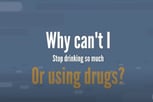Detoxification, or “detox,” is the process of removing toxins from the body of the addict. There is a different detox process for each type of substance, but not all addicts will require a formal detox from their substance.
Detox Treatments for Different Drugs
Alcohol and benzodiazepine medications ("Benzos" such as Valium and Xanax) may require medical detox for the addicts’ safety. Long-term use of these types of drugs can endanger the life of the addict when withdrawal begins. A doctor should be consulted for the best type of detox from these substances.
Other substances, such as cocaine, amphetamine and hallucinogens seldom require detox. However, each addict should consult with a doctor and honestly reveal the amounts and frequency of drug use. Pain medication and other narcotics may have severe withdrawal symptoms that can be alleviated by drug substitution, which also needs medical monitoring.
Some detox agencies or programs will use other drugs to get the addict off the substance of abuse. The detox drugs used may include, but are not limited to, Methadone, Suboxone, or other narcotic substitutes. Detox from "Benzos" may require a tapering-off of the drug over a period of time to make the withdrawal process safer for the addict.
Suddenly stopping many drugs is dangerous, and this is particularly true for stopping benzodiazepine medications. These are drugs used for treating disorders such as anxiety and depression. Alcohol withdrawal can also be dangerous and may be fatal if the addict has a history of long-term use or has been drinking consistently at a high volume of intake. All of these detox processes require supervision by a physician.
Hospital Detox
This is conducted in a hospital setting. Most detox programs are located in a specific section of the hospital or on a certain floor. This program is often incorporated with other mental health services the hospital provides. The detox unit is monitored closely by medical staff to ensure the safety of the addicts while they are undergoing detox.
Treatment Centers That Also Offer Detox
Many treatment centers have special services for detox that are the initial part of the treatment program at that center. They have medical personnel who are trained to monitor the withdrawal process for each patient. They frequently have a separate unit in the treatment facility that is set aside for the purpose of initial detox. Some programs will use drug substitution and others will medically monitor the withdrawal process without the use of detox drugs, other than those determined to be life-saving or otherwise necessary.
Non-Medical Detox
Some treatment programs will provide services to monitor detox for patients being admitted for treatment. They will often place a new client on a 24-hour watch to determine how much of the substance remains in the addict's system. Once the addict is medically stabilized, they can begin their treatment program.
A non-medical detox may be most appropriate for clients who have short-term use of alcohol and other drugs that are determined safe for the addict to stop taking. This is done with a medical advisor who consults with the addict to determine their level of dependence on drugs and alcohol. They monitor the addict to make sure they are physically and mentally stable enough to undergo the withdrawal process without medication. Activity levels and diet are usually monitored to make the addict safe and comfortable while undergoing detox in this setting. Discomfort from withdrawal is common, but not life-threatening for most drugs. Medical personnel will advise the addict when he or she is fit to begin the post-detox treatment process.
Programs without Detox
Most out-patient and sober living environments do not have detox units. Other programs that may not provide these services are those without medical staff available onsite to monitor medically necessary detox protocols. These programs and agencies will refer addicts to a detox unit where they can be stabilized before being brought into treatment. Not all addicts will require a formal detox experience. This is best determined by a physician and the agency or center where treatment is being provided.
All who seek treatment are best advised to contact a medical professional when considering detox and addiction treatment. Medical professionals who specialize in addiction treatment are best qualified to refer clients to an appropriate treatment setting for further evaluation.
If you or someone you know is seeking help with addiction, please visit our directory of treatment centers or call 866-606-0182 to start the path to recovery today.








